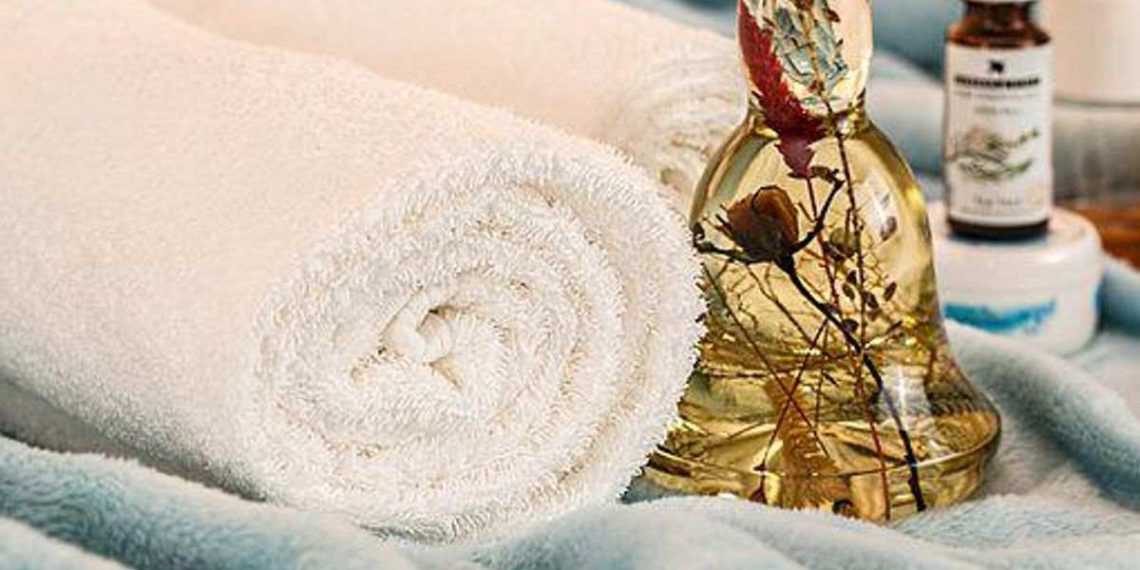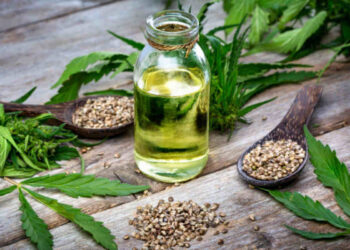One common ingredient in natural solutions, essential oils are used normally through inhalation or by means of topical application of diluted acrylic. Because these oils are so readily accessible to the public, many people erroneously assume that no particular know-how or training is needed to employ them. Unfortunately, there are many who makes mistake. Some have examined a little about aromatherapy, or maybe a friend or supplier’s features told them a particular necessary oil is good for this or that. But crucial oils can cause problems when used incorrectly. How much you don’t know about these powerful botanicals?
Some have read slightly about aromatherapy, or a good friend or supplier has advised them a particular oil is useful for this or that. But essential skin oils can cause problems if applied incorrectly. How much do you really be familiar with these powerful botanicals?
Exactly what Essential Oils?
Essential oils are highly concentrated liquids made from plant material-bark, blueberries and other berries, flowers, leaves, roots, hybrid tomato seeds, or twigs-that are produced in several unique ways.
The most common is water vapour distillation, in which pressurized water vapour is passed through plant content, causing oils to disappear. The resulting mixture of acrylic and steam is abridged back into a liquid, along with the oil is skimmed away.
Plants that are too weak for steam distillation, including jasmine, and orange blossom, in addition to rose, can have their essential oils extracted using solvents. Essential oils created by this process are called absolutes and are generally used in perfumes or perhaps diffusers because the solvent deposits make most of them unsuitable for topical use.
A third technique is carbon dioxide extraction. While these kinds of oils are technically absolutes, the pressurized carbon dioxide applied as a solvent leaves simply no harmful residue and also provides an impressive thicker oil with a lot more rounded aroma.
Finally, cold-pressed essential oils are those which were extracted from fruit rind by grinding and demanding it.
Most essential skin oils do not have an indefinite shelf life: lemon or lime oils will lose their efficiency after about six months, and a lot of floral oils will last per year or maybe two. A few-cedarwood, patchouli, sandalwood, and vetiver-become better with age. It is possible to refrigerate oils that you do not work with often. It is also a good idea to retail them away from sunlight, with small bottles with significantly less air space.
Know What You’re Receiving
The method of production is one factor affecting the coffee quality and price of these organic extracts. Others include the rarity of the plant, how and where it absolutely was grown, how many plants are essential to produce the oil, as well as the quality standards of the maker.
Genuine rose oil, like is extremely expensive. This is mainly because it takes 200 pounds of roses (approximately 60, 000 flowers) to make 1 ounce of rose oil. That will equal 30 roses for any single drop! If you are having to pay less than $80 for a 5-millilitre bottle of rose essential oil, it is either synthetic or even it has been diluted with a service provider oil such as jojoba. Buying diluted oil is completely acceptable as long as you know what you might be getting.
Reputable suppliers are going to be upfront about whether many are sold already diluted. Much less reputable suppliers may be promoting an adulterated blend (for example, a small amount of rose olive oil mixed with cheaper rose geranium oil) and claiming its 100 per cent rose oil.
You’ll want to know that different varieties of a similar plant can have different employs. For example, high-altitude French violescent is most often used in products, while Bulgarian or English language lavender is used in bathroom products, diffusers, or being a sleep aid. The variety known as spike lavender is greater in camphor, which provides respiratory benefits. Lavandin is really a hybrid of English violescent and spike lavender, as well as “40/42” is a blend of a number of varieties that are stretched along with synthetic lavender oil as well as used by many soapmakers.
Even similar plants can produce widely distinct oils. Many years ago, My spouse and I purchased a brand of turmeric oil which I found quite disappointing. It didn’t genuinely smell like ginger. The idea wasn’t until a few years after, when I had learned much more about essential oils, that I recognized I had purchased an essential oil made from dried ginger underlying instead of fresh. What a distinction!
I strongly recommend purchasing important oils only from reputable suppliers that specialize in aromatherapy materials. Unfortunately, there are companies available that rely more on extravagant claims than on the high quality of their products and others which sell synthetic fragrances under the guise of essential oil. Here are some red flags to watch for finding a product.
Grading Guile
Though essential oils do have beneficial value, there are no company standards for their products without official grades of olive oil assigned or identified by any organization. Manufacturers along with distributors who claim their very own oils are “therapeutic grade” are using this as a promoting term only, and it is unreadable as an indicator of the oil’s quality.
Synthetic Substitution
Though we use aromatherapy for you to mean the therapeutic using essential oils, the word is simply not formally defined or licensed by the US government. Subsequently, it is legal to sell items labelled “aromatherapy” that do not really contain essential oils, but only synthetic fragrance.
Artificial fragrance may be described on the label as “aroma essential oil, ” “aromatic oil, inch “fragrance oil, ” or even “perfume oil. ” They are all blended synthetic noses that are diluted with nutrient oil, propylene glycol, or even vegetable oil and may also consist of phthalates and other potentially poisonous ingredients.
Synthetics are much less expensive than essential oils, and the scent is much stronger. If you walk past a wax luminous store and can smell typically the candles from outside, that is certainly a synthetic fragrance. There is a number involving plants that cannot be employed to produce essential oils: some situations are gardenia, lilac, along with lily of the valley. Supposed essential oils marketed underneath these names are always manufactured.
Nutrient non-sense
Some suppliers make claim that their important oils deliver nutrients to the body. This is one thing these types of oils simply cannot do. Robert Tisserand, one of the most respected aromatherapists and author of The Artwork of Aromatherapy (Healing Artistry Press, 1978), the first English-language book on the topic, states, “What nutrients? Essential natural oils do not contain nutrients.
These people contain no vitamins, nutrients, proteins, amino acids, carbohydrates, or any type of other type of nutrient. micron’s Claims that these oils cure disease-even cancer-are also unsubstantiated by science, and you should steer clear of any distributors able to make such claims about their total products.
If you intend to use necessary oils, it is vitally important to come up with them like any other treatment tool: get properly trained in their use, and thoroughly explore contraindications and interactions. Including anything else that can be applied to the system, essential oils can potentially result in harm. Remember, “natural” would not automatically mean a product will be gentle or safe. And they also should never ever be taken inside unless you are under the proper care of a certified medical aromatherapist and that is not a license given in the United States.
There are oils that have to not be used on a person with good blood pressure and oils that will interact with certain medications. Cypress and rosemary can be hazardous if a woman is expectant or nursing. And some necessary oils, such as wintergreen, could be lethal if ingested.
One of the common and dangerous beliefs is that essential oils can be employed neat (undiluted and put on directly to the skin) with skin care. I cannot emphasize ample that this is strongly distressed by leading aromatherapists or any reputable manufacturers and sellers. No essential oil should ever previously be applied neat in body care-not tea tree, definitely not lavender, not any other types of essential oil.
When these essential oils are applied neat, a lot of people will have an immediate or overdue reaction, which can range from using up, irritation, or swelling for you to very major and really serious health consequences. Other people are going to be unaffected at first. Since the olive oil seems safe, they use it. Over time, this reasons the skin to become sensitized compared to that essential oil and the plant it is about form, with a longer-term, cumulative effect. When that happens, not simply will the client be unable to employ that oil again, they can not be able to use other merchandise or foods that are linked to it.
Correct use of vital oils for topical apps always requires dilution, normally at a strength of 6-15 drops of essential oil for each ounce of whatever item it is being added to.
Citrus fruit oils are good examples of what sort of wonderful oil can be dangerous if used incorrectly. These types of oils have antiseptic attributes and blend well with products, but many citrus natural oils cause photosensitivity, and customers should avoid direct sunlight with regard to 12-72 hours after publicity.
In addition, because citrus important oils are created with the cold-pressed method, there will be traces associated with pesticides in the oil until you are careful to buy natural. And finally, whether a citrus essential oil is organic or not, it may be irritating to the skin. Because of this, it’s best to add citrus natural skin oils only to products that will be rinsed off, such as cleansers, not ever a moisturizer or any various other product intended to remain on your skin layer.
With the right knowledge and measures, you can safely use vital oils. Take classes, pick up some books that explore each oil and its components, and spend time researching the huge benefits and contraindications of the indoor plants involved. You will soon always be enjoying the sweet aroma of successful aromatherapy.
Read also: What you can do For A Sinus Infection?











